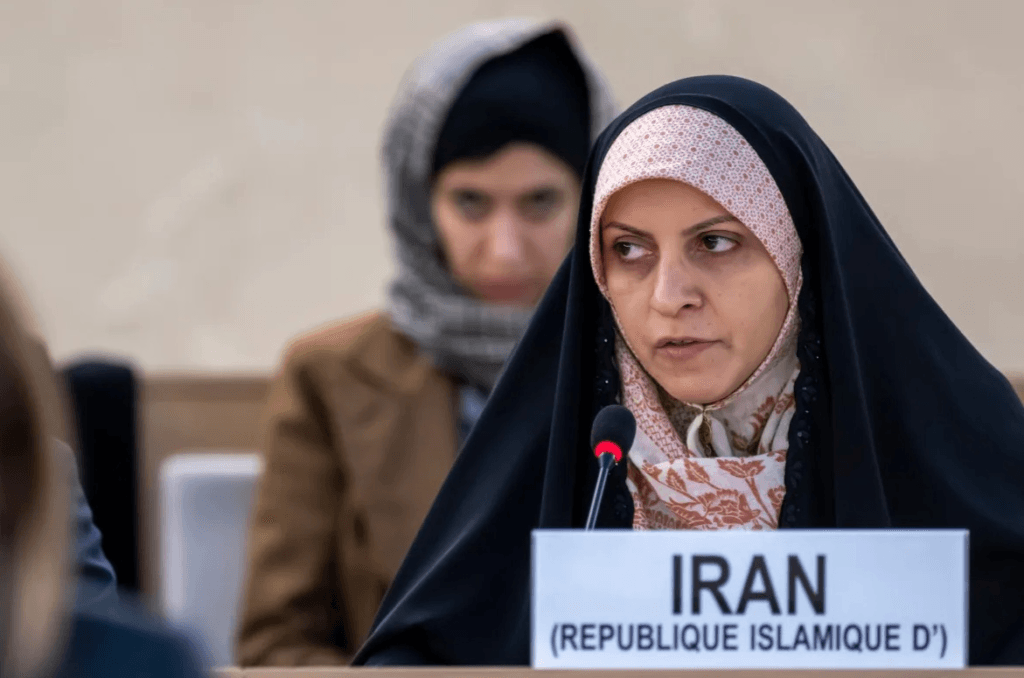
In its fourth Universal Periodic Review (UPR) by the United Nations Human Rights Council, Iran received a total of 346 recommendations from member states aimed at improving human rights, including freedom of religion or belief (FoRB), peaceful assembly, and related civil liberties. However, the Iranian government rejected 186 of these proposals—more than half—signaling a strong refusal to align with global human rights expectations.
Christian Persecution Escalates in 2024
The year 2024 saw a significant intensification of persecution against Christians in Iran. At least 139 Christians were arrested solely because of their faith or related activities. Of these, 80 individuals were detained, and 77 were formally charged. By the end of the year, 18 Christians remained imprisoned on charges directly tied to their religious beliefs. Reports emerged of several detainees being physically tortured during custody.
A large portion—over 70 percent—of these arrests and convictions were prosecuted under the amended Article 500 of the Islamic Penal Code (IPC). This article targets “propaganda contrary to Islam,” especially when combined with accusations of receiving foreign funding or organizational support. In many cases, the Islamic Revolutionary Guard Corps (IRGC) conducted investigations that focused on individuals’ international financial transactions or their legal and spiritual connections to churches abroad.
Harsh Sentences and Financial Penalties
n 2024, 96 Christians were sentenced under various charges. These sentences added up to a total of 263 years in prison and 37 years of internal exile. In addition to incarceration, Iranian courts imposed nearly 800,000 US dollars in fines. Furthermore, church properties were confiscated under Article 500 bis, which specifically targets those identified as leaders or supporters of house-church movements. This indicates a systematic effort to dismantle unofficial Christian gatherings. Government-controlled media campaigns also played a role in vilifying Christian organizations and even recovery groups like Narcotics Anonymous, falsely portraying them as tools of Western influence meant to induce conversion.
Individual Cases Highlight Discrimination
The report highlighted several disturbing individual cases. Mina Khajavi, a 60-year-old Christian convert, was summoned to serve a six-year prison sentence in Tehran’s notorious Evin Prison. Her charge: “educating in a deviant way contrary to Islam.” In another case, Laleh Saati, a Christian convert who had returned to Iran after seeking asylum in Malaysia, was arrested shortly after her arrival. She was held in solitary confinement for several weeks and eventually sentenced to two years in prison with a two-year travel ban. Her charges were based on alleged connections with “Zionist Christian organisations.” Notably, her case was presided over by Judge Iman Afshari, who is sanctioned by the United Kingdom for severe human rights abuses.
Evidence of Systematic Religious Repression
Leaked judicial records from Tehran courts spanning 2008 to 2023 have revealed at least ten patterns indicating systemic repression. Chief among them is the consistent branding of Christian converts and house-church participants as national security threats. Iranian authorities frequently label these groups as “Zionist Evangelical movements,” using Articles 498, 499, 500, and 513 of the Islamic Penal Code to prosecute peaceful religious activity. The involvement of the IRGC in these cases extends beyond arrest to extensive financial investigations, often without proper oversight by the judiciary. Beyond imprisonment, additional punishments include internal exile, travel bans, large fines, deprivation of social rights, and mandatory participation in regime-aligned re-education programs. These measures are designed to isolate, stigmatize, and reprogram religious minorities who deviate from state-approved religious doctrine.
Contradiction Between Iranian Law and International Standards
Iran is a signatory to the International Covenant on Civil and Political Rights (ICCPR), which guarantees freedom of religion or belief under Article 18. This includes the right to adopt, change, and publicly or privately manifest one’s religion. However, Iran’s own legal structure only officially recognizes a limited set of Christian denominations—namely, Armenian, Assyrian, and Georgian communities. Converts from Islam, who now make up the vast majority of Christian believers in Iran, are excluded from this recognition and instead face intense scrutiny and legal threats. The UN Human Rights Committee has repeatedly urged Iran to revise its national laws to comply with ICCPR Article 18. Specifically, it called for repealing laws that criminalize conversion and non-Muslim worship, and demanded that individuals be allowed to practice their faith freely without the threat of arrest or punishment.
Final Observations
The large-scale rejection of UN recommendations, paired with harsh legal actions against Christian converts, underscores Iran’s deliberate and systemic repression of religious freedom. This is not merely a matter of isolated incidents, but a deeply embedded policy of criminalizing belief systems that diverge from official state doctrine. Until such laws are repealed and Iran allows for legal recognition of all faith communities—including those who convert from Islam—the prospects for religious liberty in the country will remain bleak.


